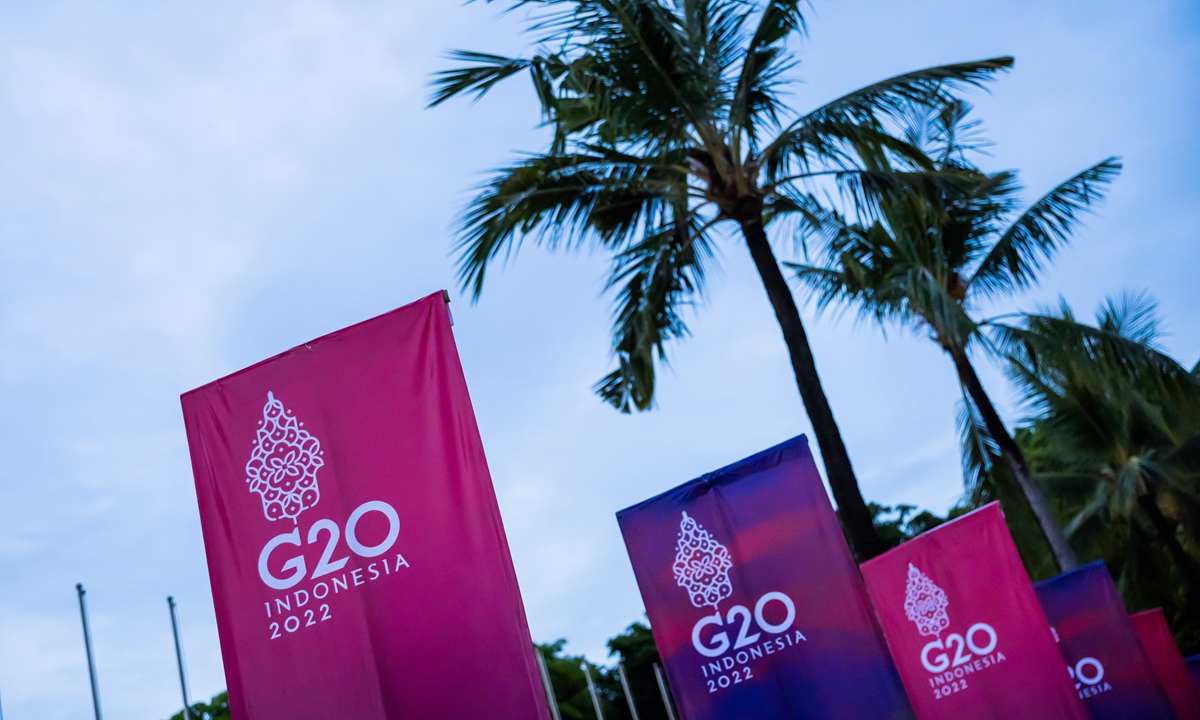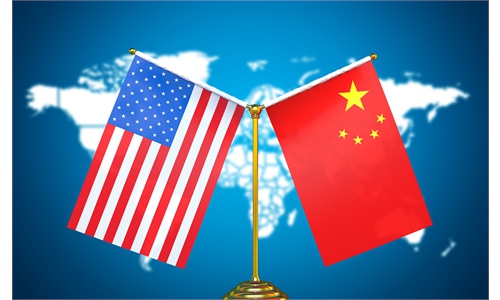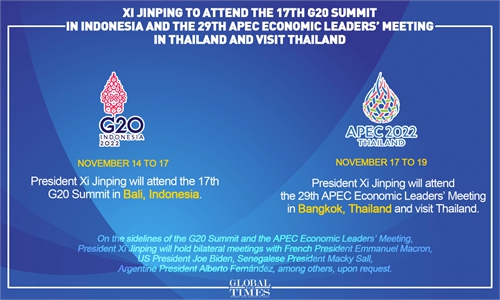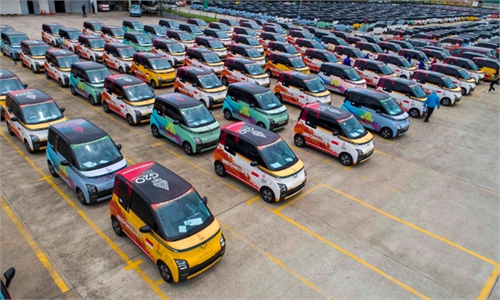
Photo: IC
G20 Leaders' Summit will take place on November 15 and 16 in Indonesia's Bali. Some media outlets have labeled it as "possibly the most stressful G20 ever." By all accounts, this is no exaggeration. To be honest, Indonesia's job as chair of the summit is not easy.Ahead of the summit, an article was published by The Jakarta Post with the title "G20 leaders, please don't come to Bali just to quarrel." The article said, "Indonesian people, and global citizens, hope the leaders refrain from using the precious moments during the summit simply as opportunities to criticize and attack one another." This is obviously a reference, followed by directly naming the US and the Group of Seven (G7), asking them to act for global peace and interests, and not "force their will against smaller or poorer nations." These remarks reflect the general sentiment of the international community toward the G20 summit. We fully understand and agree with them.
The current posture of Western countries led by the US seems as if they are going to G20 to "quarrel," and public opinion has already made rough predictions about who will be targeted and what they will say. The global rift triggered by the Russia-Ukraine conflict and US' promotion of its strategy to contain China is a new situation for this year's G20 summit, but it just underlines the crucial value of the G20 as an important platform for coping with global crises as well as reforming and improving global economic governance. Bringing political confrontation to the G20 venue is a severe pollution to the precious platform of the G20, which is bound to be unanimously condemned by the international community.
Indonesia has set the theme of this year's G20 as "Recover Together, Recover Stronger," and issues on global health architecture, digital transformation and sustainable energy transition as the three top priorities. Both the themes and priority issues are closely related to the original intention and mission of the G20, focusing on several of the most severe common challenges facing the world today and putting forward constructive directions for discussion, which embodies the presidency's good intention to seek common ground. There is too much for G20 leaders to discuss and communicate on these topics. And since the summit is only two-day long, time is very limited, and any deviation from the theme is a waste. We can only send boos to such words and deeds.
The G20 was established due to global financial crises, but the organization is more like a product of the time. When the US was hit by a financial crisis, even with the G7, it couldn't handle it, so there was a real need for it to strengthen coordination and dialogue with emerging countries. In a sense, the G20 is also a symbol of the transformation from the West having the only say to common governance across the globe. As a result, as Washington's interest in multilateral coordination fades, and its enthusiasm for forming its own bloc grows, the US has become increasingly disinterested in the G20. Instead, it is very interested in the G7. From the previous G20 summits, we can see that Washington is increasingly explicit in its interference in the events with political issues.
It should be emphasized that the G20 is not an expanded G7. It is entirely different in nature: While the latter is just a coterie of rich countries, the former is a sign of multipolarity. The G20 consists of the world's major developed economies and emerging markets, which together account for about 85 percent of the global economy. Since its establishment, it has shown a strong vitality, representing a trend and carrying the common expectation of all countries in the world. This will not change at the will of the US, because "the whole world is pinning their hope on G20 to be a catalyst of global economic recovery, especially for developing countries."
China is one of the strongest supporters of the G20. It has been promoting the G20 to play a leading role in addressing global challenges and improving global economic governance. Although this G20 summit is overshadowed by geopolitics, the importance and urgency for the world to strengthen policy coordination and cooperation in the economic field are increasing. As Indonesian President Joko Widodo, the head of state of the host of this G20 summit, said, "The G20 is not meant to be a political forum. It's meant to be about economics and development." We hope that instead of playing a geopolitical chess game at the summit, all G20 members will be sincere from the heart, so that the organization can play its proper role.



